
0
M+
People served
0
M+
Programs Fundes
0
M+
Fund Raised
0
+
Partner organization
Vision
A society where youth proportionately participate and contribute to equitable social economic transformation.
Mission
To enhance the participation of youth in sustainable development through capacity building, knowledge management and advocacy
Changes in the Global Development context & its Challenges have been seriously considered by SYNI in all our strategic planning processes. This reaffirms our commitment to “Community Transformation.” However, we are also determined to broaden the scope of our work beyond our Youth Foundations, with emphasis on building Stronger Community Hub Systems and advancing Soc-Economic rights for the communities in all regions of the Great Lakes Africa that are most in need.
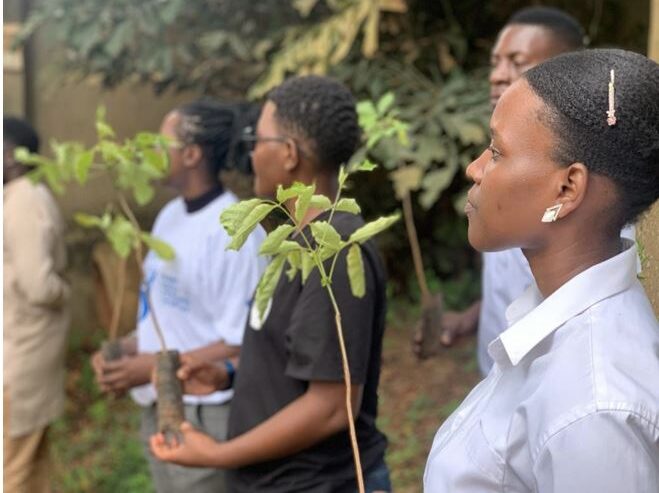
Background to SYNI Uganda
Smart Youth Network Initiative (SYNI) is a youth-Led network organisation focused on community transformation. We seek to transform communities by building the capacity of young people to contribute towards sustainable development. In the abovementioned core mandate, SYNI has since 2017, conducted advocacy drives with a view to alleviate the various challenges that young people encounter in the transient stages of tertiary education and early adulthood.” We have engaged the youth & Communities since 2017 in Youth Advocacy Campaigns, projects in various parts of the Great Lakes Region to spearhead change in their communities in line with our vision, and hence alleviate the challenges that aggravate to poverty through equipping them with Innovative Market Skills, Policy Advocacy and Enhancing Peer Learning. The Network was created to prioritise and advocate for Youth Active Participation and developmental needs. The Network was formed upon a realisation that there are still poor standards of living of Youths and Women despite the existence of policies and Legal Frameworks for Youth Empowerment.
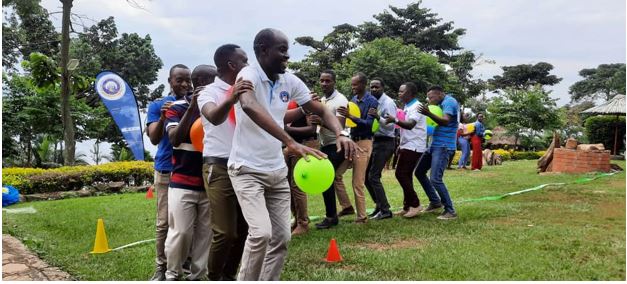
This organization has combined technical assistance for Rural Women and Young People with Empowerment ,Training Programs. As a mode of operation, SYNI has encouraged Village Civic Business Committees to create enabling environment for livelihoods, instead of struggling alone. Now these Young People can work together to solve common problems.
Smart Youth Network Initiative’s Global Scope
Smart Youth Network Initiative is a (UNEP) accredited organisation in consultative status with the United Nations Environment Assembly (UNEA) . We are members of World’s Youth for Climate Justice, World Food Forum and Great Lakes Youth Network for Peace & Security. Despite the fact that Young people have to go through a lot and all of the registration processes to have their voices of heard & taken serious , we have still work hard to keep working for our vision and mission, as the Global South Youth led network organisation in Africa -Uganda, we feel even more motivated to improve Global Environment and climate change decision making Processes by mobilising Youth and communities to participate in the affairs of their local government planning processes through a series on online and local communities’ meetings so that everyone raises their opinions without fear. In the passed three years, our priorities were improving the feedback and post events (negotiations) agendes with other important processes, looking at diversity, equity, and inclusiveness of partnerships of both Global North and Global South youth for COPs and beyond,

This organization has combined technical assistance for Rural Women and Young People with Empowerment ,Training Programs. As a mode of operation, SYNI has encouraged Village Civic Business Committees to create an enabling environment for livelihoods, instead of struggling alone. Now these Young People can work together to solve common problems. Throughout late 2020 and the whole year 2021 we have been heavily engaged with the majority of the working groups, including those that are directly linked with the negotiable topics with UNFCCC, namely Adaptation, Finance, and Loss & Damage, as well as Action for Climate Empowerment (ACE) and Nationally Determined Contributions (NDCs), and in strong connections to Health and Nature aspects due to the contributions roles working with the Contact Point in these two working groups: Within the Adaptation working group, our most notable involvement that is directly linked to the UNFCCC process was participating in the two-day hybrid 4th Global Goal on Adaptation meeting in mid-October 2022. We were actively engaged through giving interventions, highlighting youth engagement in local/rural areas and funding mechanisms, as well as monitoring and evaluating early warning systems in Africa. For the Finance & Markets working group, we contributed to finalising the funding document that was compiled by the previous members. It was aimed at funding targets for YOUNGO, especially for Contributing and participating in the Countiers process for the COP statements and other climate-related Programmes. We gave views to the Youth Leader from Canada who was chosen as the Speaker for the webinar hosted by the Finance & Markets WG on Article 2.1c of the Paris Agreement, which is “financial flows consistent with a pathway towards low greenhouse gas emissions and climate-resilient development”, focusing on the financial flow from the developed countries to developing countries. The webinar included speakers from the Rabia Transitions Institute and World Resource Institute. The Loss & Damage working group involved bilateral meetings with the Government of Germany (online) and the UN funding agency (in-person at COP27). We led the east African group to give views and contribute to the paper of the UN funding agency bilateral meeting and had a meaningful engagement with the UN funding agency representative, who was very ambitious in collaborating with our working group of YOUNGO, which will hopefully be one of the main goals for the Loss & Damage working group for 2023. We were also part of the African groups working with Nature Contact Point with the Nature working group. We facilitated and encouraged the Nature working group members to lead webinars for World Wildlife Day, World Water Day, International Forest Day, and Earth Day. Key speakers represented UNICEF and Earth Day (earthday.org). Nature working group had a side event at COP27 on wetlands and discussed youth engagement at a local level across the world. Collaborations/Partnerships with the Nature Working Group include the Iris Project and the International Forestry Students' Association. One side event was also planned at the UN Convention on Biological Diversity COP15 on biodiversity and ecofeminism.
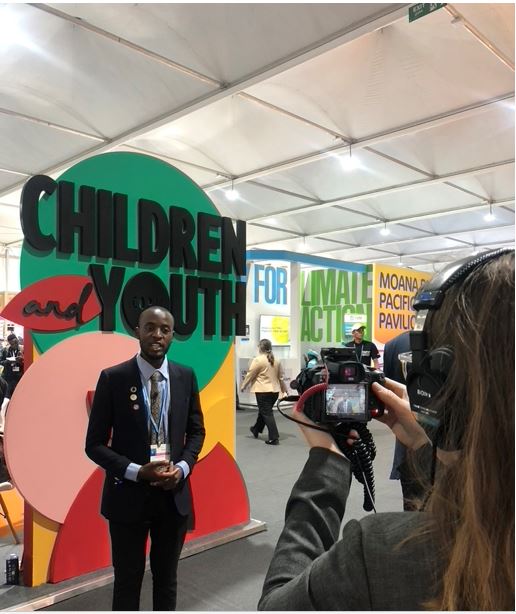
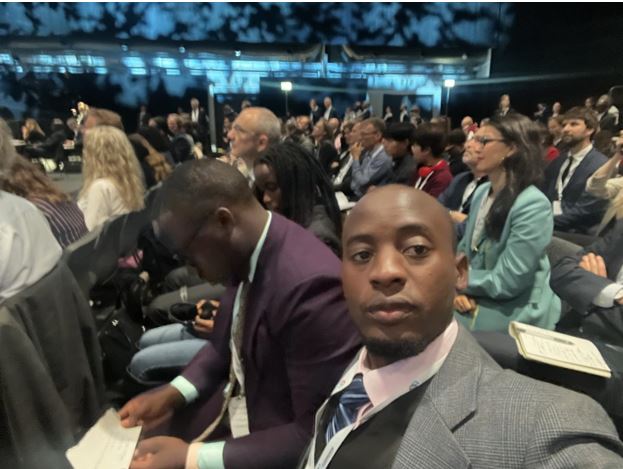
Other than Working Groups, we engaged with the Policy Team within the Global Coordination Team (GCT). This is by far the most important aspect of our contribution to the Global Environment Movements. Not only has the Smart Youth Network Team worked hard to mobilise African and South American youth members to contribute to the topics respective to each working group, but we also conducted capacity-building sessions within one Year in East Africa before the Bonn Climate Change Conference (Subsidiary Bodies (SB) 56).

Capacity-building sessions were designed to familiarise the Great Lakes Regional youths with the UNFCCC system and its main conferences, notably SB56 and COP27, and to enhance their involvement as an observer. Global Youth Statement (GYS) was presented at both COY16, COY17 and other COPs, to the newly appointed Executive Secretary of the UNFCCC, Simon Stiell, as well as to the COP27 President Sameh Shoukry. With the coordination of the Policy Team and GCT, COY17 gathered over 1000 participants from nearly 140 countries, while the GYS for combined COY16 and 17 were supported by over 40,000 youth across the world. Youth’s voice was highlighted in the Sharm el-Sheikh Implementation Plan, which was launched as the result of COP27.

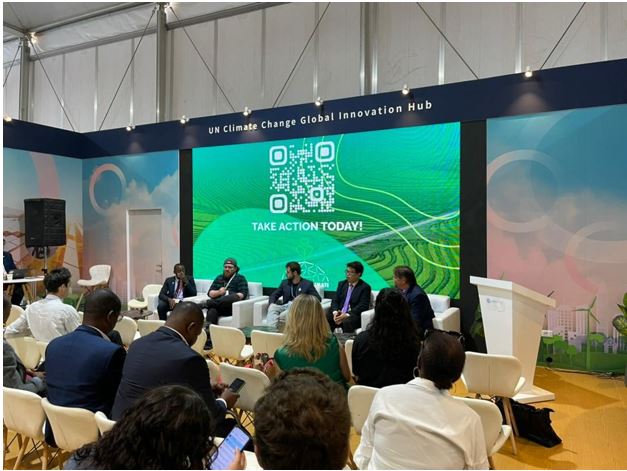
In addition,UN Major Group for Children and Youth (UNMGCY): From December 2021 until June 2022, we were part of the Stockholm+50 Youth Task Force (YTF), which is convened by the UNEP (UN Environmental Programme) team of the UNMGCY, known as the UNMGCY-UNEP. We led a series of youth consultations conducted through a diverse range of youth organizations and individuals to produce the global youth policy paper, which was presented to the UNEP Under-Secretary-General Inger Andersen. Since June 2022, the Stockholm+50 YTF has pledged to continue engaging in the UN system and beyond. The Stockholm+50 YTF collaborated with Business Sweden for a side event at COP27 at the Sweden Pavilion, to examine climate change from the perspective of business.
Global Youth Climate Network (GYCN):
we participated in the 2021 Max Thabiso Edkins Climate Ambassador program with the GYCN, which aligns with the World Bank. The program aims to develop fundamental skills for the youth in climate change and finance through webinar series that included expert speakers in the industry related to the World Bank and climate change, with the requirement for the participants for initiating three climate action projects within three months. We co-hosted a series of webinars on climate education and capacity building in the domains of energy, wildlife, and climate change. It was very successful that the participants are continuing their projects through three climate action required projects.
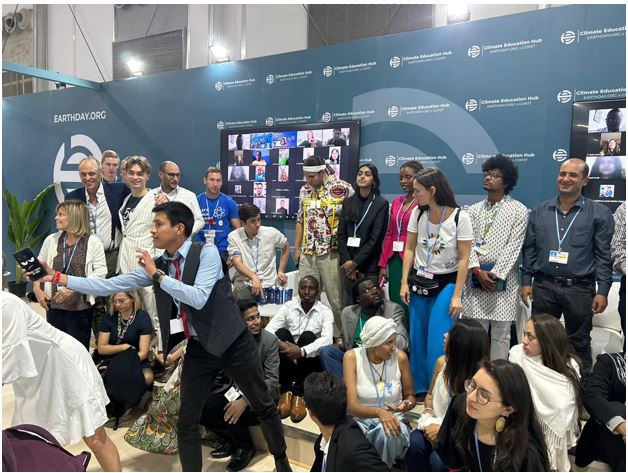
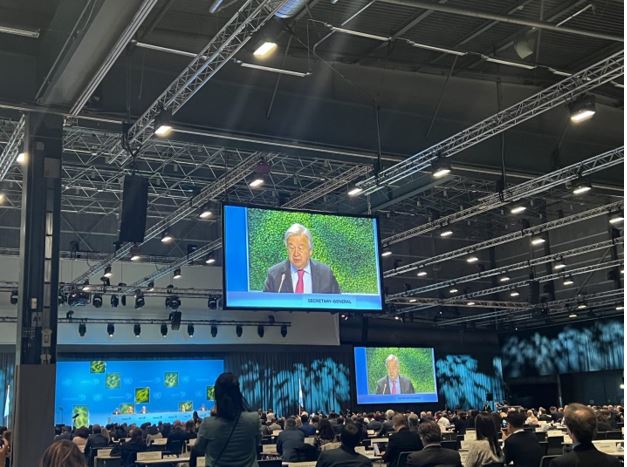
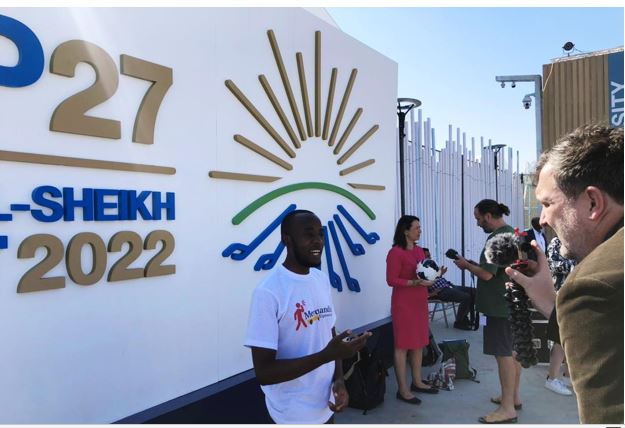
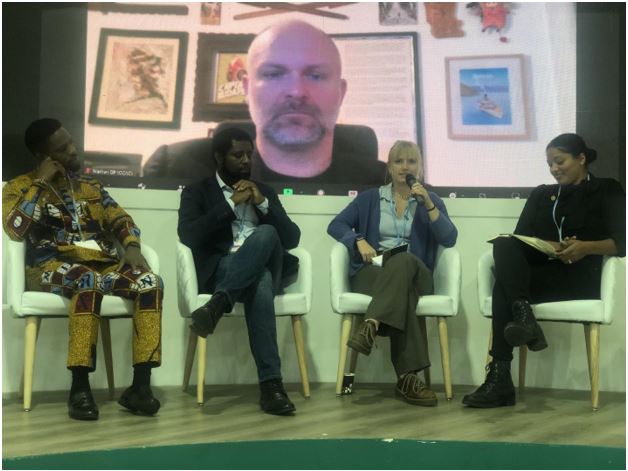
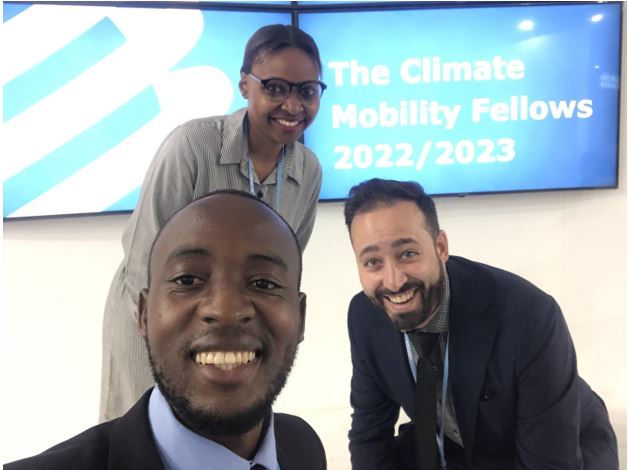
We have been actively communicating with the Middle East and North Africa (MENA) NGOs and youth before and since COP27, and towards COP28 and beyond. Our focus is not just on African youth but also United Arab Emirates youth on how to create partnerships for climate action. Through consulting with youths and local NGOs in Africa and UAE, we discovered that there are not many opportunities for the youth in Africa to engage in climate change in the EAC/MENA region compared to other regions. Not only that, but we are also associated with several youth organizations. One group has recently started contacting the University of Oxford and the first meeting has been successful, with the aim to focus on capacity building and education in climate change specifically targeting COP28 and has built a children's home in Wakiso district in Uganda. Another group, and as an individual, has been consistently in touch with various NGOs across the globe, arising from networking during both COP27 and COP15. One such NGO is based in Canada, with an emphasis on resource mobilization and financial opportunities for the youth in small island developing states (SIDS), through the collaboration between the NGO in Canada and the NGOs in other SIDS. Among other NGOs, my goal is to connect the NGOs in Africa, South/Southeast Asia, Central/Latin America, and the Caribbean to amplify the voice for COP28, including the women and girls, Indigenous peoples, and Most Affected People and Areas (MAPA).
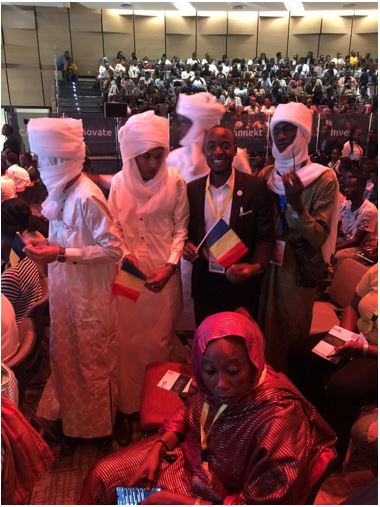

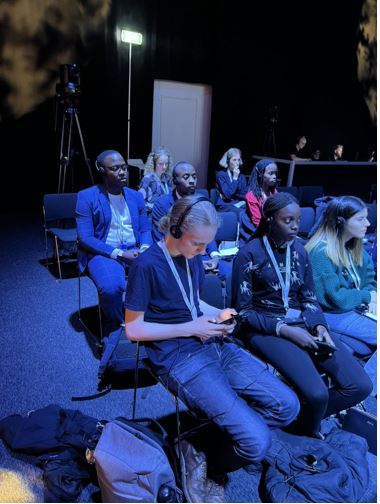
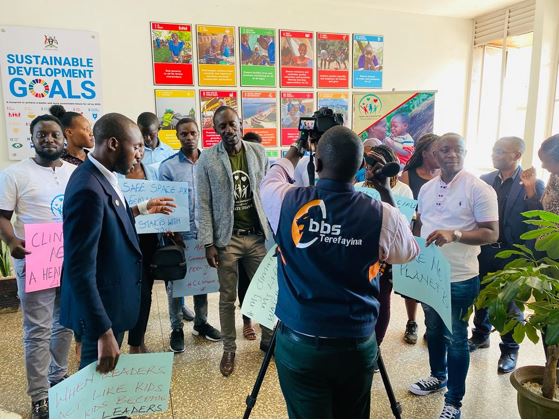
There were several occasions with language barriers while trying to communicate with youth and world leaders. It is important to have youth from across the world become interpreters and translators. Translating documents into six languages of the UN is not enough, as Smart Youth Network initiative has regular meetings with external individuals and groups to ensure better collaborations and partnerships. We have been adocating for a Task Force for interpreters and translators, both written and oral. All important documents such as working group introductions and mandates should be written in these languages. Overall, we are detailed and systematic thinkers who thrives to connect the youth in our local communities to Global Decision Making Forums to ensure youth voices are heard and transparency, and most importantly.
Join the Movement
Together, we can make a lasting impact on the lives of Canadian youth. Donate today and support our cause! re
Transformation Stories
Discover inspiring stories of how our programs have changed lives
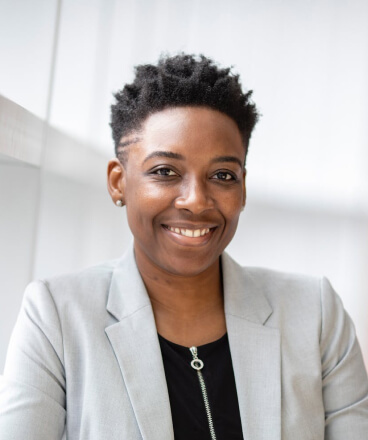
Overcoming Adversity
Meet Sarah, a determined young woman who used the resources and support from Smart Youth Network to overcome adversity and achieve her dreams.

